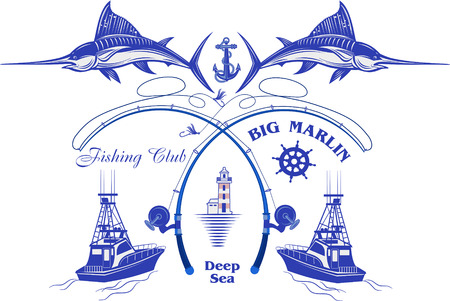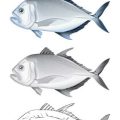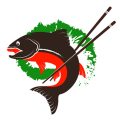British Angling: A Brief Overview
Angling in the United Kingdom is more than a pastime—it’s a cherished tradition woven into the very fabric of rural and urban communities alike. From the gentle meanders of the River Test to the wild Scottish lochs, British anglers have long been drawn together by their shared respect for nature and a passion for the contemplative pursuit of fish. The riverside in Britain isn’t just a place to cast a line; it’s a space where camaraderie flourishes, stories are exchanged over thermos tea, and generations mingle under willows and alder trees. This longstanding heritage has fostered an inclusive environment, where newcomers are welcomed into an ever-evolving community. Increasingly, these banks are also becoming gathering places for women anglers, who find support through mentorship and friendship within British angling networks, continuing the tradition of belonging that is so characteristic of angling in the UK.
2. The Role of Mentorship in Angling Circles
Within the tranquil banks of Britain’s rivers and lakes, mentorship emerges as a time-honoured tradition in angling communities—a subtle but powerful force that shapes both skill and spirit. Seasoned anglers, often with decades of river wisdom, take newcomers under their wing, fostering an environment where learning is as natural as the flowing current. This hands-on guidance goes well beyond merely teaching how to cast a line; it’s about passing down local river lore, practical know-how, and the unwritten codes of etiquette that govern respectful angling.
Through these relationships, women entering the world of British angling find themselves welcomed into a network where encouragement and knowledge-sharing are prioritised over competition. The mentor’s gentle correction on bait selection or advice on reading water currents can be just as valuable as tales told by the fireside—stories that reveal the secret haunts of barbel or the best times for trout rising at dusk. Such mentorship not only hones technical skills but also instils a deep respect for nature’s rhythms and the delicate balance required to preserve these wild places.
Key Aspects Passed Down Through Mentorship
| Area of Guidance | Description |
|---|---|
| Technique Mastery | From casting accuracy to knot-tying and fly selection, mentors offer practical demonstrations and real-time feedback. |
| Local Knowledge | Sharing insights about river conditions, seasonal changes, and specific fish behaviours unique to British waters. |
| Ethics & Etiquette | Imparting the unwritten rules—such as respecting fishing spots, catch-and-release practices, and consideration for other anglers and wildlife. |
| Cultural Traditions | Telling stories of legendary catches, local folklore, and community rituals that connect generations of anglers. |
This culture of mentorship ensures that every newcomer—especially women seeking their place along Britain’s storied waterways—benefits from both practical instruction and a sense of belonging. It creates a ripple effect: those once guided become guides themselves, nurturing future stewards of the rivers and reinforcing the close-knit fabric of the angling community.
![]()
3. Women in Waders: Grassroots Initiatives and Local Clubs
The British angling landscape is experiencing a refreshing surge as womens angling groups blossom from the tranquil shores of Windermere to the winding reaches of the Thames. Once, the bankside was seen as a rather masculine preserve, but today, grassroots initiatives and local clubs are breaking new ground—rod by rod—inviting women to discover the calm, camaraderie, and challenge of fishing. Across England, clubs such as Ladies Fishing UK and regional collectives in Cumbria and the Home Counties have emerged as essential springboards for female participation. These networks are more than just sporting societies; they’re warm communities where seasoned anglers pass down tips on casting technique or reading river currents, and newcomers can ask about everything from kit selection to waterproofs over a post-catch cuppa.
What sets these groups apart is their welcoming ethos. New joiners are met with encouragement rather than competition, making it easier for women to try their hand at angling without fear of judgement or intimidation. Whether its a social match on a leafy Hampshire lake or an informal skills workshop on the Essex coast, the sense of belonging fosters confidence alongside technical ability. Many clubs also champion environmental stewardship, blending natural observation—such as noting kingfishers skimming the water or spotting rare aquatic plants—with practical conservation efforts.
This groundswell of activity hasn’t gone unnoticed. From local press features celebrating female-led fishing tournaments to partnerships with national bodies like the Angling Trust, women’s angling groups are steadily reshaping perceptions and opening up what was once a closed circuit. As word spreads via club newsletters, social media, and riverside chats, more women are picking up the reel for themselves—often discovering that the greatest catch isn’t always found at the end of a line, but in the community by your side.
4. Tackle Shops, Tea Breaks, and Social Networks
If you ask any seasoned British angler about the heart of their fishing journey, chances are they’ll mention their local tackle shop as much as any riverbank or lake. These shops aren’t just places to pick up a tin of maggots or the latest feeder; they serve as bustling community hubs where knowledge is exchanged with every packet of hooks sold. For women entering the world of angling, these spaces offer more than gear—they provide mentorship, camaraderie, and a warm welcome into the fold.
It’s at the counter, often with the kettle bubbling in the back, that newcomers find themselves drawn into conversations—be it about bait choices for tench or the best waterproofs for a drizzly session on the Broads. The ritual of a tea break is far from trivial; it breaks down barriers and fosters genuine connections. Many female anglers recount first learning casting tips or discovering local fishing spots while sharing a cuppa and a biscuit at their neighbourhood tackle shop.
Beyond the shop floor, British angling thrives on its vibrant calendar of community events. From friendly club matches to charity fish-ins and open days, these gatherings create informal opportunities for women to meet like-minded souls, find mentors, and form lasting bonds. The relaxed pace of these events means there’s always time for a chinwag between casts—a space where experience is shared freely and support networks naturally develop.
The Social Web: How Connections are Built
| Setting | Role in Community Building |
|---|---|
| Tackle Shop | Local information hub, informal mentoring, equipment advice, social introductions |
| Tea Break | Ice-breaker for new members, safe space for questions, tradition fostering inclusivity |
| Community Event | Opportunities for networking, skill-sharing sessions, forming friendships beyond fishing |
Nattering Our Way to Confidence
The power of a good natter—a proper chat over tea—cannot be underestimated. In British culture, this simple act smooths the way for mentorship to flourish organically. Women who might feel hesitant asking technical questions in formal settings often find that a relaxed conversation by the tackle display or beside a riverside brew-up brings down any sense of intimidation. Stories are swapped, triumphs celebrated, and setbacks reassured away—all creating an environment where women feel supported not just as anglers but as valued members of a thriving community.
Fishy Friendships: More Than Just Angling Partners
In summary, it’s through these everyday interactions—at the till, during tea breaks, and at local meets—that British angling networks knit together. For women especially, these traditions open doors to friendships that reach well beyond the water’s edge. Whether it’s encouragement before a first match or a shared flask on a chilly dawn session, it’s clear: in Britain’s angling scene, support often starts with “Fancy a brew?” and ends with lifelong camaraderie.
Breaking the Surface: Success Stories
Across the rivers, lakes, and coastal stretches of Britain, a new tide is rising—one marked by the quiet victories and inspiring journeys of women anglers. Personal stories from within the angling community reveal just how transformative support and mentorship can be, not only in skill-building but also in forging lifelong friendships and confidence. Take, for example, Emily from Cumbria, who began fishing on her local tarns with borrowed tackle and plenty of nerves. Through the encouragement of a local women’s angling group, she learned to cast with precision and soon landed her first wild brown trout—a moment she describes as “breaking the surface,” both literally and figuratively.
Mentorship often begins with small gestures: a shared thermos of tea on a chilly morning, or an experienced hand guiding a novice through knot-tying techniques. For Priya in the East Midlands, joining an all-female angling meet-up was life-changing. With guidance from seasoned anglers, she overcame her initial doubts about handling live bait and now regularly leads introductory workshops for other newcomers. These ripple effects are seen throughout British angling networks—each story adding another layer to the collective strength of women in the sport.
The success stories aren’t always about record-breaking catches; sometimes they’re about conquering personal hurdles or challenging stereotypes. Lizzie from Kent recalls a time when she was the only woman at her local coarse fishing match. Encouraged by messages from her online angling community, she persevered, finishing respectably and earning nods of approval from veteran competitors. “The camaraderie made all the difference,” she reflects.
Such triumphs—be they modest or monumental—highlight how vital community support remains for women venturing into angling. Each personal account weaves into a broader narrative: that every cast made with confidence is a testament to encouragement, mentorship, and the enduring British spirit of sharing knowledge by the water’s edge.
6. Looking Forward: The Future of Inclusive Angling
The journey towards a more inclusive and vibrant British angling community is well underway, but the road ahead holds even greater promise. Ongoing efforts across the country reflect a collective ambition—not just to welcome more women onto the banks, but to see them thrive as mentors, leaders, and innovators within the sport. Organisations such as the Angling Trust and local angling clubs are actively nurturing networks where women can share experiences, access training, and find encouragement in both traditional coarse fishing and the more adventurous fly-fishing scene.
One visible trend is the rise of women-led events and workshops, designed to foster skills and camaraderie in a supportive environment. These gatherings create opportunities for knowledge exchange—where seasoned anglers pass on their expertise and new voices are welcomed into the fold. They also serve as springboards for future initiatives, including campaigns that challenge lingering stereotypes and projects that improve accessibility to waterside venues.
Community ambitions are not limited to participation alone. Increasingly, there is a push to see women take on prominent roles—be it as club officers, conservation advocates, or contributors to angling media. Local mentorship schemes, often built around natural observation and an appreciation for Britain’s wild spaces, help foster confidence and leadership qualities among female anglers. These schemes not only strengthen social bonds but also lay the groundwork for women’s continued influence in shaping the culture of British angling.
Opportunities abound for further progress. Expanding partnerships with schools, outdoor education centres, and conservation charities can introduce angling to younger generations of girls—helping them discover both the gear and the gentle art of reading water. Digital platforms are also bridging gaps: online forums and social media groups connect women across regions, enabling them to share stories from their favourite rivers or celebrate personal milestones like landing a first tench or mastering a tricky cast.
The heartening reality is that each small step—every shared cup of tea at a lakeside meet-up, every piece of advice handed down from one angler to another—contributes to a broader movement. By continuing to champion inclusivity, support grassroots mentorship, and amplify diverse voices within its ranks, British angling can look forward to a future where everyone feels they belong by the water’s edge.


